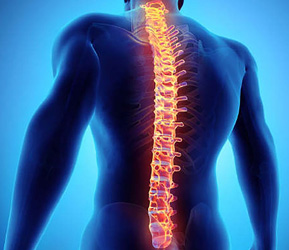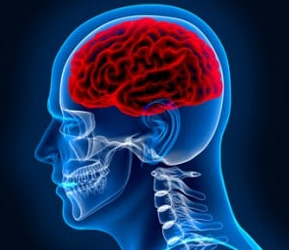Our Services
Head Injury
A head injury is any sort of injury to your brain, skull, or scalp. This can range from a mild bump or bruise to a traumatic brain injury. Common head injuries include concussions, skull fractures, and scalp wounds. The consequences and treatments vary greatly, depending on what caused your head injury and how severe it is.
Head injuries may be either closed or open. A closed head injury is any injury that doesn’t break your skull. An open (penetrating) head injury is one in which something breaks your scalp and skull and enters your brain.
It can be hard to assess how serious a head injury is just by looking. Some minor head injuries bleed a lot, while some major injuries don’t bleed at all. It’s important to treat all head injuries seriously and get them assessed by a doctor.
Stroke Brain Hemorrhage
A brain hemorrhage is a type of stroke. It's caused by an artery in the brain bursting and causing localized bleeding in the surrounding tissues. This bleeding kills brain cells. Brain hemorrhages are also called cerebral hemorrhages, intracranial hemorrhages, or intracerebral hemorrhages.
Brain hemorrhages are also called cerebral hemorrhages, intracranial hemorrhages, or intracerebral hemorrhages. They account for about 13% of strokes.
Since some brain hemorrhages can be disabling or life-threatening, it’s important to get medical help fast if you think someone is having one. Here’s what you need to know about the causes, symptoms, treatments, and more.
Lumbar And Cervical Disc
So what are the cervical and lumbar discs? A cervical disc is an intervertebral disc in your cervical spine (neck) and the lumbar disc is the intervertebral disc in your lumbar region (lower back).
Nothing lasts forever, especially the human body. Decades of bending, lifting, turning, and twisting can really take their toll on your neck. Considering all that repetitive stress, it's no surprise that about two-thirds of people will experience neck pain at some point in their lives.
Cervical disc disease goes beyond just a pain in the neck, though. A degenerative process can cause radiating pain, as well as numbness and weakness in your shoulders, arm, and hand. That discomfort and loss of mobility can have a major impact on your career, family, and quality of life.
Seizure
A seizure is a sudden, uncontrolled electrical disturbance in the brain. It can cause changes in your behavior, movements or feelings, and in levels of consciousness. Having two or more seizures at least 24 hours apart that aren't brought on by an identifiable cause is generally considered to be epilepsy.
Seizures usually come on suddenly. How long and serious they are can vary. A seizure can happen to you just once, or over and over. If they keep coming back, that's epilepsy, or a seizure disorder. Less than 1 in 10 people who have a seizure get epilepsy.
Spine fractures
Spinal fractures are different than a broken arm or leg. A fracture or dislocation of a vertebra can cause bone fragments to pinch and damage the spinal nerves or spinal cord. Most spinal fractures occur from car accidents, falls, gunshot, or sports. Injuries can range from relatively mild ligament and muscle strains, to fractures and dislocations of the bony vertebrae, to debilitating spinal cord damage. Depending on how severe your injury is, you may experience pain, difficulty walking, or be unable to move your arms or legs (paralysis). Many fractures heal with conservative treatment; however severe fractures may require surgery to realign the bones.
Brain Tumor
A brain tumor is a mass or growth of abnormal cells in your brain.
Many different types of brain tumors exist. Some brain tumors are noncancerous (benign), and some brain tumors are cancerous (malignant). Brain tumors can begin in your brain (primary brain tumors), or cancer can begin in other parts of your body and spread to your brain as secondary (metastatic) brain tumors.
How quickly a brain tumor grows can vary greatly. The growth rate as well as the location of a brain tumor determines how it will affect the function of your nervous system.
Brain tumor treatment options depend on the type of brain tumor you have, as well as its size and location.
Brain Infection
A brain infection refers to an infection caused by viruses, bacteria, fungi, or parasites that affects the brain, spinal cord, or the surrounding area. Brain infections are serious and can be life-threatening.
Infections and conditions affecting the brain and spinal cord can activate the immune system, leading to inflammation. These diseases and the resulting inflammation can produce a wide range of symptoms, including fever, headache, seizures, and changes in behavior or confusion. In extreme cases, they can result in brain damage, stroke, or even death.
There are different types of brain infections, and each type has its own unique cause and treatment. Encephalitis refers to inflammation in the brain, and meningitis is inflammation of the meninges, the membranes that surround the spinal cord. Myelitis refers to inflammation of the spinal cord, and a brain abscess describes a collection of pus in the brain. Infections of the brain require emergency treatment.







